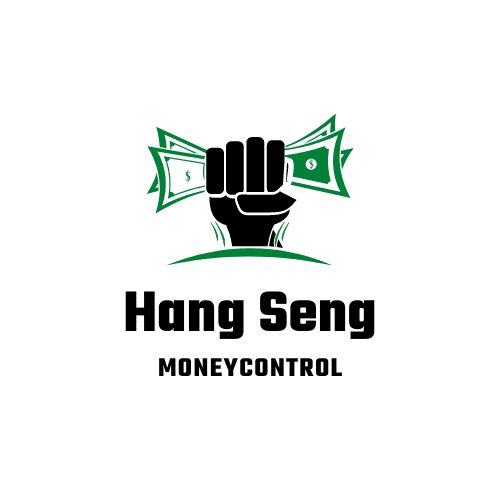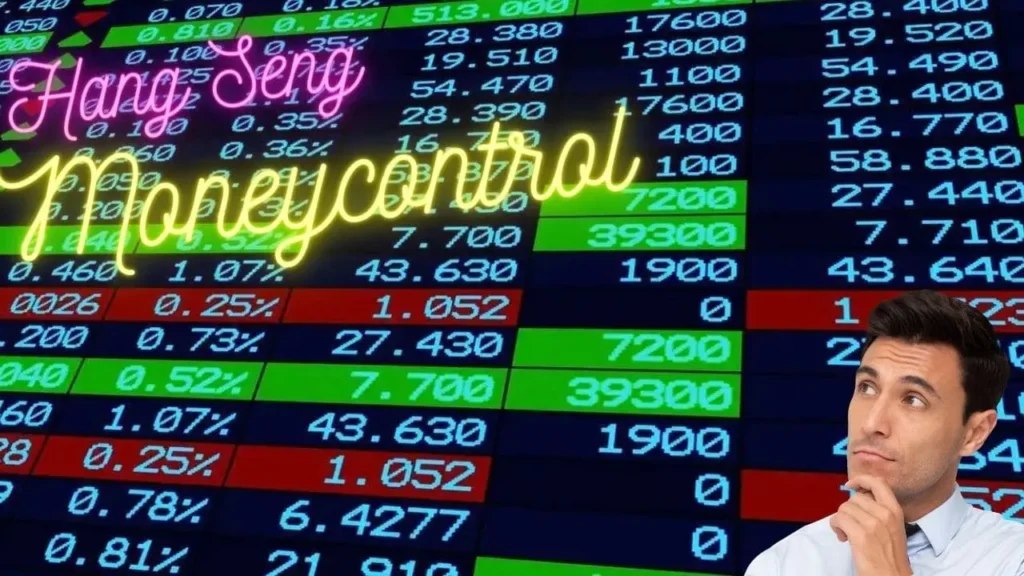The Hang Seng Index (HSI) is one of Asia’s most vital stock market indices, representing the heartbeat of the Hong Kong Stock Exchange (HKEX). It tracks the performance of the largest companies listed on the exchange and is a critical barometer for the Hong Kong economy. Today, in this article, we will explore the Hang Seng Moneycontrol performance on November 21, 2024, by diving into technical analysis, market factors, and predictions. Whether you’re a seasoned investor or just beginning to understand the market, this comprehensive breakdown will provide valuable insights into the Hang Seng control index.
1. What is the Hang Seng Index?

The Hang Seng Index (HSI) is a free-float-adjusted, market capitalization-weighted stock market index representing the performance of the largest and most liquid companies listed on the Hong Kong Stock Exchange. Created in 1969, the index now includes 50 companies from the finance, real estate, consumer goods, and technology sectors. For real-time tracking and detailed performance analysis, platforms like Hang Seng Moneycontrol are essential tools for investors.
The Importance of the HSI:
The Hang Seng Index provides insight into the overall health of Hong Kong’s financial markets. Investors globally often use it to gauge economic conditions in Asia, particularly in China, Hong Kong’s largest trading partner. The Hang Seng control platform is invaluable for investors seeking up-to-date data and market sentiment for this critical index.
The index is a blue-chip benchmark, similar to the Dow Jones Industrial Average (DJIA) in the U.S., and is regarded as one of the most important in Asia. It reflects a broad spectrum of industries, offering a comprehensive view of Hong Kong’s economic landscape. You can easily track this index’s performance on Hang Seng Moneycontrol for immediate updates.
2. Overview of Today’s Hang Seng Performance (November 21, 2024)
Today’s performance of the Hang Seng, as shown on Moneycontrol, presents a picture of moderate volatility and mixed investor sentiment.
Current Index Value:
- Hang Seng Index (HSI): 19,639.49
- Change: -65.52 (-0.33%)
Day’s Range:
- Day High: 19,764.62
- Day Low: 19,605.09
Today, the index has declined by 0.33%, which is relatively modest compared to more extreme market movements. However, the narrower day range of approximately 160 points suggests limited volatility, with the market showing signs of consolidation as investors await new cues or catalysts to push prices higher or lower. Check the Hang Seng Moneycontrol platform regularly for any updates on this movement.
52-Week Range:
- 52-Week High: 23,241.74
- 52-Week Low: 14,794.16
The fact that the index is still trading above its 52-week low of 14,794.16 and well below its 52-week high of 23,241.74 indicates a moderate long-term trend. We can expect fluctuations as it approaches the lower end of this range, but the market remains resilient in the face of local and global uncertainties. Investors can track these changes closely on Hang Seng Moneycontrol for any potential adjustments.
3. Technical Analysis of Moneycontrol

Hang Seng Moneycontrol provides valuable real-time market insights, including technical analysis to help investors predict short-term price movements. Below is a breakdown of the critical technical indicators for understanding Hang Seng’s November 21, 2024 performance.
Key Technical Indicators:
Moving Averages:
Moving averages help smooth out short-term price fluctuations and provide a clearer trend direction. The Hang Seng’s simple moving averages (SMAs) across different periods reveal important insights:
| Period | SMA Value (in HKD) |
|---|---|
| 5-Day | 20,474.42 |
| 10-Day | 18,881.35 |
| 20-Day | 18,297.12 |
| 50-Day | 17,714.45 |
| 100-Day | 17,986.42 |
| 200-Day | 17,213.01 |
Analysis:
- The 5-day SMA (20,474.42) is significantly above both the 10-day and 20-day SMAs, which suggests a short-term bullish sentiment. This implies that the recent price movements have been upward, at least in the short run. For real-time updates, check Hang Seng Moneycontrol.
- The 200-day SMA (17,213.01) indicates that, on a longer-term scale, the market is still in an uptrend, provided the 5-day and 10-day averages continue to hold above this level.
Support and Resistance Levels:
Resistance and support levels are vital in understanding where the market may encounter challenges or find support.
Classic Pivot Points:
| Level | Price (in HKD) |
|---|---|
| Resistance 1 (R1) | 19,762.93 |
| Resistance 2 (R2) | 19,983.38 |
| Resistance 3 (R3) | 20,107.59 |
| Support 1 (S1) | 19,418.27 |
| Support 2 (S2) | 19,294.06 |
| Support 3 (S3) | 19,073.61 |
- R1 (19,762.93) marks the immediate resistance point. If the market breaks this level, it could move higher toward R2 and R3. Track Hang Seng Moneycontrol to stay updated on these levels.
- On the downside, S1 (19,418.27) acts as the primary support level, suggesting that a further decline toward S2 and S3 could occur if the price drops below this.
Fibonacci Retracement Levels:
Fibonacci retracement levels are used to identify potential reversal points in the market. These are often calculated using key price points from recent market movements. For today’s performance, the important Fibonacci levels are:
| Level | Price (in HKD) |
|---|---|
| Resistance 1 (R1) | 19,770.38 |
| Resistance 2 (R2) | 19,851.72 |
| Support 1 (S1) | 19,507.06 |
| Support 2 (S2) | 19,425.72 |
- R1 and R2 are close to the Classic Resistance levels, while S1 and S2 reflect the downside risk. For further updates, keep an eye out for the Hang Seng Moneycontrol feed.
4. Factors Influencing the Hang Seng’s Performance
Today, the Hang Seng Index’s performance results from various interconnected global and domestic factors, including economic reports, geopolitical issues, and ongoing market sentiment. Investors can track these developments in real time via Hang Seng Moneycontrol.
Global Economic Conditions:
Global factors, particularly U.S. Federal Reserve policies and China’s economic stability, play a significant role in shaping Hang Seng’s performance.
U.S. Federal Reserve:

- Interest Rates: If the U.S. Federal Reserve raises interest rates to combat inflation, it could lead to capital outflows from emerging markets, including Hong Kong. A rising U.S. dollar and higher bond yields would discourage investment in stocks globally, which could hurt the Hang Seng. Investors monitoring Hang Seng Moneycontrol will be able to make informed decisions based on these global trends.
- Global Liquidity: U.S. monetary policy directly affects global liquidity, and any tightening of monetary policy could increase volatility in emerging markets like Hong Kong.
China’s Economic Outlook:
Since Hong Kong’s financial market is closely linked to mainland China, the state of the Chinese economy is crucial for Hang Seng’s performance. Investors can access up-to-date data on Hang Seng Moneycontrol to track Chinese market developments closely.
- Slower Growth: If China’s growth slows, it will likely impact the earnings of Hong Kong-listed companies, particularly those in sectors like finance and real estate, which are highly exposed to Chinese demand.
- Regulatory Environment: Any new regulations imposed by the Chinese government on Hong Kong-listed companies, especially in tech and fintech, could also drive volatility in the Hang Seng.
Hong Kong’s Local Political Landscape:
Hong Kong’s political landscape and relationship with China can significantly influence investor sentiment.
- Political Tensions: Protests, unrest, or changes in Hong Kong’s political environment can cause investors’ concerns. Geopolitical risks related to Hong Kong’s autonomy have recently become a concern.
- China’s Influence: The extent to which Beijing exercises its influence over Hong Kong’s governance also remains a concern for investors, as it directly impacts the stability of the financial markets. Check Hang Seng Moneycontrol for updates on these developments.
5. What Investors Can Do Today
For investors tracking the Hang Seng Moneycontrol feed, here are some strategies to consider based on the current market performance:
- Short-Term Trading: With the market in consolidation, short-term traders can look for price movements within the support and resistance levels. Monitoring technical indicators through platforms like Hang Seng Moneycontrol will help pinpoint entry and exit points.
- Long-Term Investment: Waiting for a more favourable market setup may be prudent for long-term investors. If global economic conditions stabilize, the Hang Seng may offer solid growth prospects, particularly as Hong Kong’s financial hub status remains unchallenged in Asia.
- Diversification: Given the global uncertainties and volatility in Hong Kong’s political environment, diversification across different sectors and markets can help mitigate risk.
6. Conclusion
The Hang Seng Index’s performance today reflects a complex combination of factors, including global economic trends, technical indicators, and local political circumstances. The market seems to be in a consolidation phase, with investors weighing their options in the face of positive and negative developments.
The Hang Seng holds promise for long-term investors, especially if global economic conditions stabilize. However, short-term traders may want to proceed cautiously, watching for new catalysts that could drive the market higher or lower.
As the world’s financial markets continue to evolve, monitoring platforms like Hang Seng Moneycontrol and understanding technical analysis will help investors navigate these uncertain waters more effectively.
FAQS:
1. What is the Hang Seng Index?
The Hang Seng Index tracks Hong Kong’s largest companies, and you can follow its performance on Hang Seng Moneycontrol.
2. How can I track the Hang Seng Index on control?
You can view real-time data, charts, and analysis of the Hang Seng Index on Hang Seng Moneycontrol.
3. What tools does Hang Seng Moneycontrol offer investors?
Hang Seng Moneycontrol provides tools for making investment decisions, such as moving averages, support/resistance levels, and technical indicators.
4. How can I check the latest Hang Seng market trends?
You can check Hang Seng Moneycontrol for the latest market trends, including highs, lows, and daily performance updates.
5. Is Hang Seng Moneycontrol helpful for different types of investors?
Also Read: India National Cricket Team vs New Zealand National Cricket Team Timeline: Series Victories and Key Moments






Leave a Reply